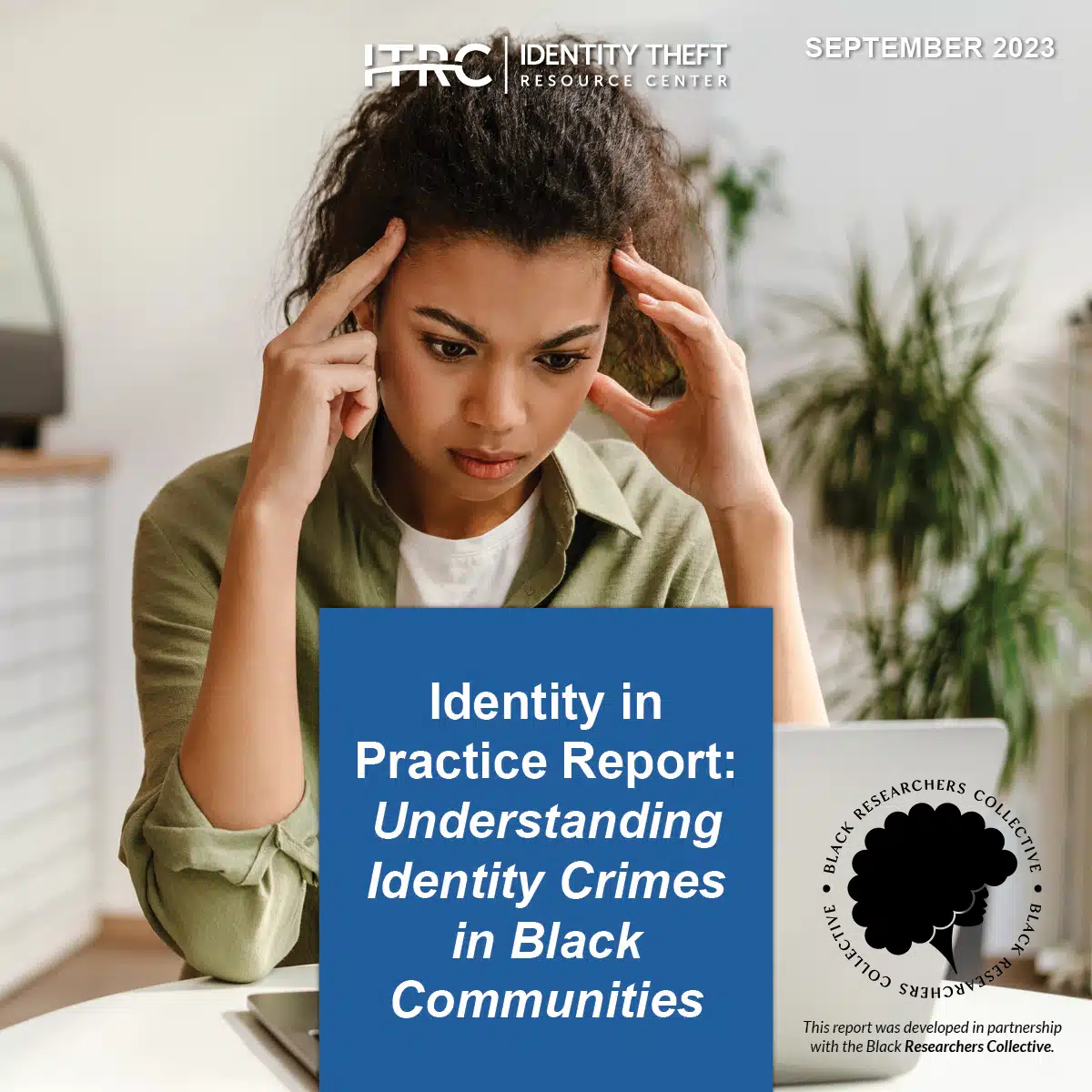Understanding Identity Crime in Black Communities
Home Understanding Identity Crime in Black Communities

Established in 1999, the Identity Theft Resource Center (ITRC) is the only national non-profit in the U.S. to provide live, direct identity crime advice and victim assistance at no cost. We serve as a resource and a voice for victims of identity fraud. The ITRC empowers and guides consumers, victims, businesses, and government agencies to minimize risk and mitigate the impact of identity compromise and crime.
Understanding the Community
During the Spring of 2022, the Black Researchers Collective (BRC) and the ITRC formed a partnership supported by Wells Fargo Foundation, Synchrony Bank, and Norton LifeLock to conduct a national research study to understand identity crime victimization across Black communities in the United States. This survey is Year One of a more extensive study that examines how identity crimes and comprises occur and how they impact individuals. Findings from the survey will be used to develop culturally appropriate victim support services. This is the first study to date that seeks to understand how identities, as articulated by ITRC, are used, maintained, and protected in Black communities and how those identities are recovered or remediated when compromised. This study will promote racial equity and the removal of barriers to access and provide opportunities for this traditionally underserved community.
Initial Findings
The preliminary findings highlighted in the report illustrate that victimization is happening among individuals who identify as Black or African American. Almost half of the participants (45 percent) mentioned that they became victims of identity fraud or misuse in the last two to three years. They either experienced fraudulent charges on their debit or credit cards or had their personally identifiable information compromised. Becoming a victim of an identity crime prompted some participants to obtain identity theft protection to prevent them from future victimization. Unfortunately, our sample size was too small to discern meaningful differences across age groups, geography, or other demographic characteristics.
For the initial research phase of the initiative, the BRC collected responses from participants who identified as Black or African American. According to the responses, 16 percent of victims reported losing at least $5,000 from their victimization. Twenty-six (26) percent lost $1,000-$4,999, 17 percentage points higher than the victims surveyed in the ITRC’s 2022 Consumer Impact Report (CIR). However, most victims reported losing more than just money. They lost time spent resolving their identity theft issues. Our study found that nineteen (19) percent of respondents spent more than a year resolving their issue. In addition to time spent looking for a resolution, many victims also reported this was not their first time being a victim of identity crime. Almost half (45 percent) reported they were victims of a separate identity crime within the last couple of years.
If you’re interested in learning more, download the Quantitative Report here.
To read the full press release, click here.
Full Identity in Practice Report
On September 26, 2023, the ITRC, in partnership with the BRC, released its Identity in Practice Report, which seeks to understand and examine identity crime victimization across Black communities in the United States. The project is supported by LifeLock (a part of Gen™), Synchrony and the Wells Fargo Foundation.“This research is an important step in gathering more data around identity theft victimization in Black communities,” said Eva Velasquez, President and CEO of the Identity Theft Resource Center.
“In 2018, when the ITRC identified a dramatic increase in the number of victims from Black communities contacting the Center for assistance and searched for existing research that might indicate why, there was none. That led to this multi-year, multi-phase study. The findings in this report show that identity theft is a growing concern and that Black communities face distinct challenges. Action must be taken to reduce victimization, particularly repeat victimization, but it is also clear that Black communities need more support to adequately address the issues surfaced here.We are eager for the next phase of this initiative so we can begin developing and testing specific identity crime materials and advice that will lead to meaningful change.”
If you’d like to download the full report, click here.
To read the full press release, click here.
How You Can Get Involved
Please contact us at [email protected] for more information.
Get ID Theft News
Stay informed with alerts, newsletters, and notifications from the Identity Theft Resource Center

